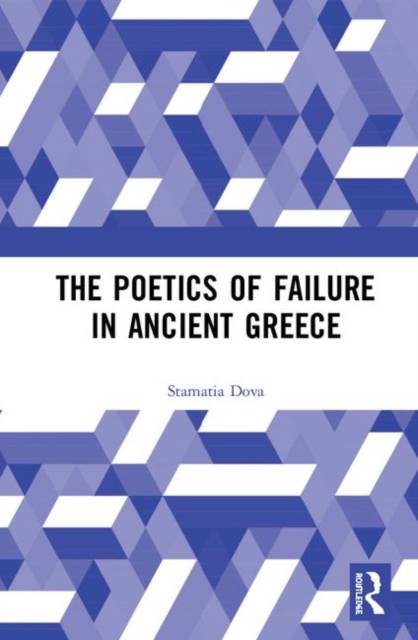
- Retrait gratuit dans votre magasin Club
- 7.000.000 titres dans notre catalogue
- Payer en toute sécurité
- Toujours un magasin près de chez vous
- Retrait gratuit dans votre magasin Club
- 7.000.000 titres dans notre catalogue
- Payer en toute sécurité
- Toujours un magasin près de chez vous
Description
The Poetics of Failure in Ancient Greece offers an innovative approach to archaic and classical Greek literature by focusing on an original and rather unexplored topic. Through close readings of epic, lyric, and tragic poetry, the book engages into a thorough discourse on error, loss, and inadequacy as a personal and collective experience.
Stamatia Dova revisits key passages from the Iliad and the Odyssey, the Homeric Hymn to Aphrodite, Pindar's epinician odes, Euripides' Herakles, and other texts to identify a poetics of failure that encompasses gods, heroes, athletes, and citizens alike. From Odysseus' shortcomings as a captain in the Odyssey to the defeat of anonymous wrestlers at the 460 B.C.E. Olympics in Pindar, this study examines failure from a mythological, literary, and historical perspective. Mindful of ancient Greek society's emphasis on honor and shame, Dova's in-depth analysis also sheds light on cultural responses to failure as well as on its preservation in societal memory, as in the case of Phrynichos' The Fall of Miletos in 493 B.C.E. Athens.
Engaging for both scholars and students, this book is key reading for those interested in how ancient Greek literary paradigms tried to answer the question of how and why we fail.
Spécifications
Parties prenantes
- Auteur(s) :
- Editeur:
Contenu
- Nombre de pages :
- 206
- Langue:
- Anglais
Caractéristiques
- EAN:
- 9781472479112
- Date de parution :
- 29-04-20
- Format:
- Livre relié
- Format numérique:
- Genaaid
- Dimensions :
- 156 mm x 234 mm
- Poids :
- 480 g







